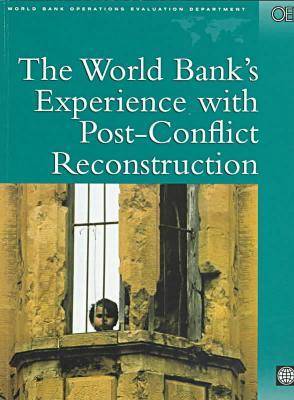World Bank operations evaluation study
1 total work
The World Bank's Experience with Post-conflict Reconstruction
by World Bank
Published 31 October 1998
Clearing landmines, rehabilitating and integrating of excombatants, rebuilding the infrastructure, coordinating aid sources--these are just some of the issues confronting the Bank in post-conflict reconstruction. The explosion of civil conflicts in the post-Cold War world has tested the World Bank's ability to address unprecedented devastation of human and social capital. This study covers post-conflict reconstruction in nine countries, assessing relevant, recent Bank experience. It also presents case-studies for ongoing and future operations, which analyze: 1. the Bank's main strengths or comparative advantages; 2. its partnership with other donors, international organizations, and NGOs; 3. its role in reconstruction strategy and damage and needs assessment; 4. its role in rebuilding the economy and institutions of governance; 5. its management of resources and processes; 6. implications for monitoring and evaluation.
